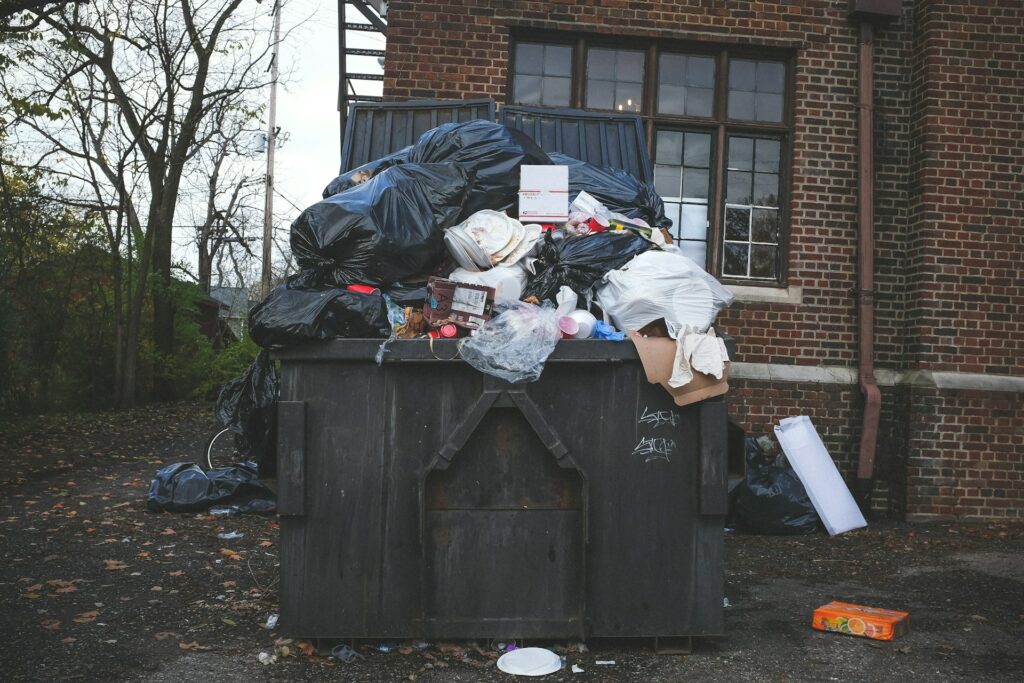Introduction
Managing waste effectively is a crucial aspect of running a small business. It not only helps in maintaining a clean and safe working environment but also contributes to the overall sustainability of the business. Here are some practical steps to manage waste in your small business.
Conduct a Waste Audit
The first step in managing waste is understanding what type of waste your business produces and in what quantities1. A waste audit involves examining the waste generated by your business over a certain period. This can help you identify areas where waste can be reduced or recycled.
Implement Waste Reduction Strategies
Once you’ve identified the types and sources of waste, you can implement strategies to reduce waste. This could involve:
- Using resources more efficiently
- Choosing products with less packaging
- Implementing a policy to reduce paper waste by promoting digital documents2
Opt for Reusable Items
Where possible, opt for reusable items instead of disposable ones. This could include using reusable cups and cutlery in the office kitchen or choosing refillable office supplies2.
Implement a Recycling Program
Recycling is a key aspect of waste management. Implement a recycling program in your business to manage recyclable waste like paper, cardboard, plastic, and metal. Make sure recycling bins are clearly labelled and conveniently located3.
Dispose of Waste Responsibly
Ensure that you are disposing of your waste responsibly. This includes complying with local regulations and using licensed waste disposal services4.
Regularly Review Your Waste Management Practices
Waste management is not a one-time task but an ongoing process. Regularly review your waste management practices and look for ways to improve. This could involve conducting regular waste audits, seeking feedback from staff, and staying up-to-date with the latest waste management strategies and technologies1.
Conclusion
Managing waste effectively is not just good for the environment; it’s also good for business. These practical steps can reduce waste, save money, and contribute to a more sustainable future.
Footnotes
- How to reduce waste in your small business – FSB ↩ ↩2
- How to Reduce Business Waste – Smarter Business ↩ ↩2
- 8 Ways to Manage and Reduce Business Waste – Green Journal ↩
- Waste disposal best practice | nibusinessinfo.co.uk ↩
Ready to revolutionise your waste management process? Dive into our diverse array of commercial waste services, expertly designed to align with your unique needs and sustainability goals.
- Visit our homepage and unearth how DCW can help transform your commercial waste management, making it more streamlined and inherently sustainable.
- Are we looking for comprehensive, easy-to-understand, and action-oriented information? Navigate to our commercial waste services page. Understand our robust collection, transportation, and disposal methods, and learn about our steadfast commitment to recycling commercial waste and our environment-first practices.
- Don’t delay! Manage your waste in an efficient, compliant, and eco-friendly way. Contact us now. Our dedicated team of experts is on hand to address your queries and guide you towards the most effective, environmentally friendly, and compliant waste management solution.
Take charge of your waste management and elevate your company’s sustainability credentials. Choose DCW – your dependable ally in comprehensive commercial waste management. Act now, or risk falling behind in the race for sustainability and compliance.
